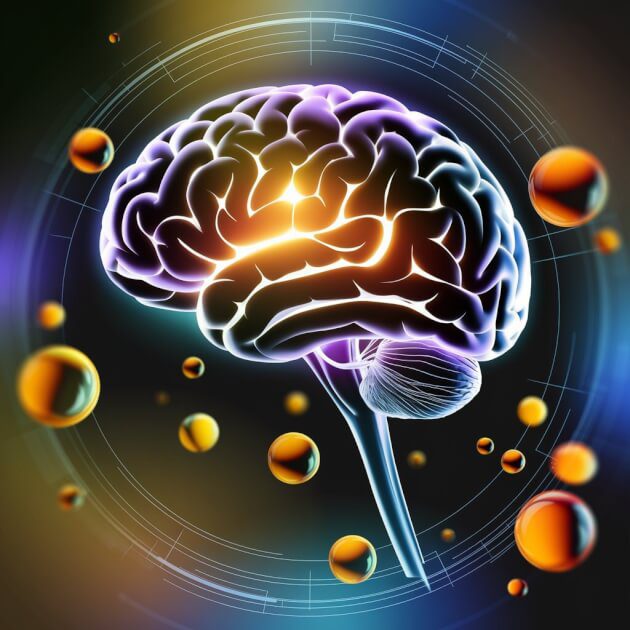Ketones and the Brain: Can Diet Really Supercharge ND Thinking?
Is Your Brain Running on Chaos or Ketones?
If you’ve ever wondered whether your brain runs better on ketones than on sheer caffeinated willpower, congratulations, you’re officially neurodivergent (ND). For ADHD, autistic, and other uniquely wired minds, diet can have a shockingly big impact on how we think, feel, and function. Some people swear by ketones and the brain function, claiming it helps with focus, mental clarity, and energy stability. Others? They just want to know if intermittent fasting is a life-changing biohack or a hunger-induced rage spiral waiting to happen. Let’s break it down.
So, let’s take a deep dive into ketones, intermittent fasting, and whether they can actually help with focus, brain fog, and the 3 p.m. spiral where you question all your life choices.
What Are Ketones and Why Should I Care?
Ketones are tiny molecules your body produces when it burns fat instead of carbs. If glucose is the default fuel, ketones are the premium upgrade, like switching from dodgy petrol to top-tier rocket fuel.
Unlock peak brain performance with science-backed biohacks. Join free now & get your guide for just £4.99 (45% off)!

For some people, especially those of us whose brains operate like 47 browser tabs running at once, ketones may provide a more stable, sustained energy source. Translation? Fewer sugar crashes, more mental clarity, and maybe, just maybe, a reduction in that moment where you walk into a room and forget why you’re there.
The Link Between Ketones and the Brain and Neurodivergence
Autistic individuals often experience sensory overload and energy crashes, and some studies suggest a ketogenic diet may help with mood regulation, anxiety, and even sensory processing. Since ketones and the brain are closely linked in how they fuel cognitive function, switching to this alternative energy source might support better emotional stability and focus.
ADHD brains? Well, they run on dopamine, and ketones and the brain may work together to stabilise energy levels, preventing the classic boom-and-bust cycle of hyperactivity followed by total exhaustion. Basically, ketones might just be the difference between “I’m going to write a novel today” and “I forgot how to spell ‘novel’.”
Intermittent Fasting: Biohacking Brilliance or Just a Trendy Way to Forget to Eat?
Intermittent fasting, or IF, is basically the art of skipping breakfast, pretending it’s on purpose, and then eating all your meals in a smaller window. This forces your body to start burning fat for fuel, producing ketones. But does it actually help neurodivergent brains?
More dopamine, less chaos. Fasting may boost dopamine sensitivity, which is great news for ADHD brains that struggle with motivation and focus. It’s like giving your brain an extra boost without needing an espresso IV drip.
More brain power, less fog. Studies suggest fasting can improve cognitive function, making it a little easier to hold onto your thoughts before they float away like helium balloons.
Fewer mood swings. Blood sugar crashes are the enemy of good decision-making. If you’ve ever found yourself rage-texting someone because you missed lunch, stabilising your blood sugar might be worth a try.
But Will I Starve?
Unlikely. Intermittent fasting isn’t about depriving yourself, it’s just about eating within a set time frame. And let’s be honest, if you’re neurodivergent and prone to hyperfocus, you’ve probably accidentally fasted more times than you can count. This just makes it official. No one’s starve-shaming you, we’re just pointing out that ketones and the brain might actually work better together than a bloodstream full of sugar crashes and impulse snack decisions.
Should You Try It?
Diet is personal. What works for one person might make another want to throw a loaf of bread at the wall. Some people feel amazing on a ketogenic diet or intermittent fasting, while others just feel hangry and homicidal. If you’re thinking of trying it, start slow, listen to your body, and for the love of serotonin, don’t skip meals entirely.
Is This the Secret to a Supercharged Neurodivergent Brain?
There’s no magic fix for optimal brain function, unless you count a full night’s sleep, which, let’s be real, is the real unicorn here. But ketones and the brain, along with intermittent fasting might be another solid tool for better focus, stable energy, and fewer days spent staring at your to-do list like it personally offended you.
At the very least, it’s a fascinating biohacking experiment to hyperfixate on. Go forth, tweak your fuel source, and may your brain fog be minimal.
Join our community
Join our community to share your experience, pick up new strategies, and swap tips with others who get it.







